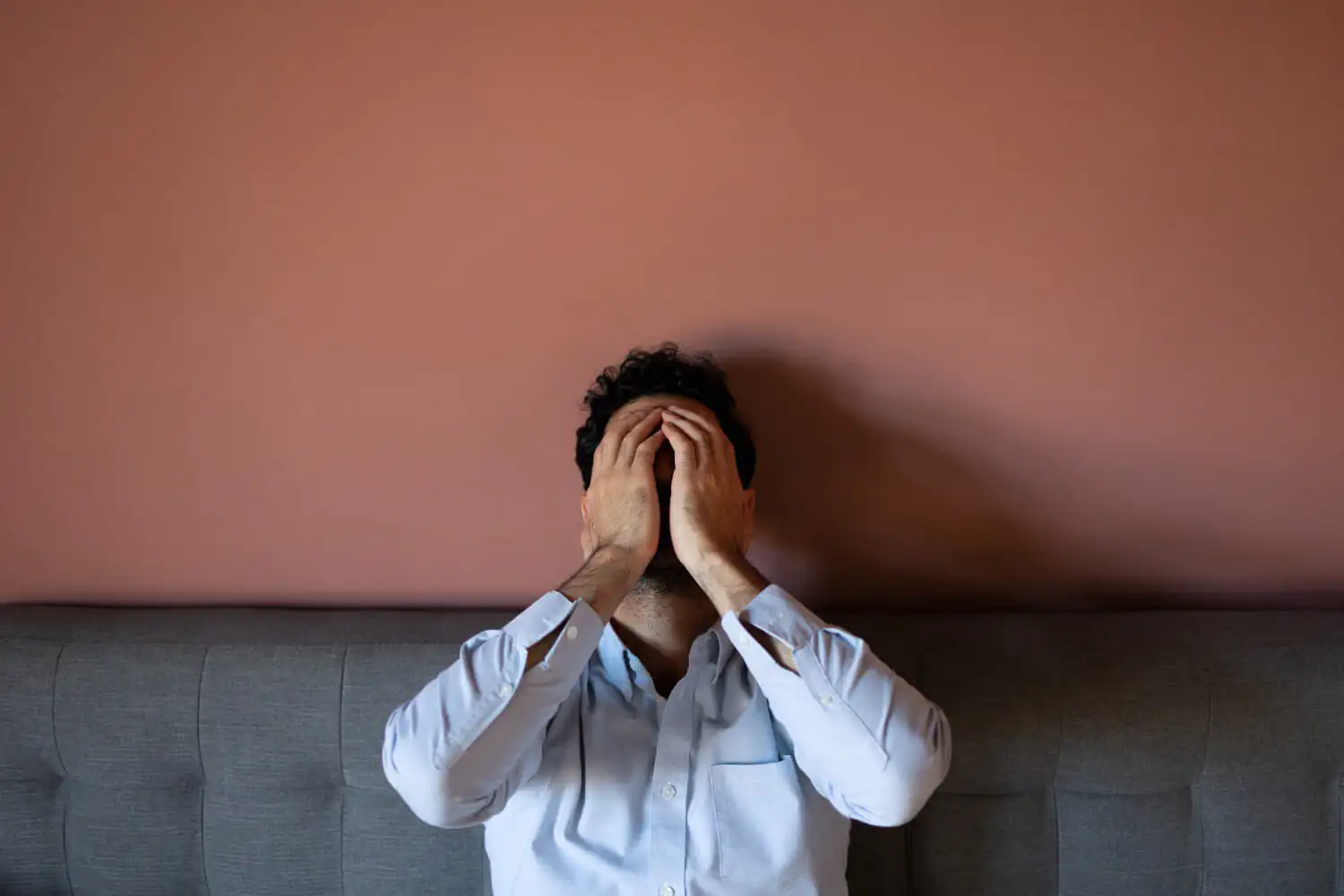
What is Social Anxiety Disorder? What are the Symptoms?
Social anxiety is the cessation of marked fear or anxiety in social situations where the person may be in a situation of being observed by others. This condition is often caused by a fear of being judged or criticized by others and can negatively affect a person’s daily life.
What is Social Anxiety?
Social anxiety is a condition that causes individuals to feel discomfort or intense stress during social interactions. For example, situations such as public speaking, chatting with a stranger, or eating in a group can be quite challenging for individuals with
What are the Symptoms of Social Anxiety?
Symptoms of social anxiety can seriously affect a person’s daily life. It can be examined in two groups as physical and psychological.
Physical Symptoms of Social Anxiety:
- Heart palpitations
- Facial flushing
- Sweating or shivering
- Nausea
- Shortness of breath
Psychological (Behavior-Cognition) Symptoms of Social Anxiety:
- Fear that others will judge you
- Avoiding public speaking or drawing attention
- Feeling extremely uncomfortable in social interactions
- Feeling embarrassed and embarrassed
- Automatic inhibiting behaviors associated with intense anxiety
- Avoiding social activities for fear of failing or being humiliated
- Perceiving anxiety and its symptoms as a secondary (social) threat
If these symptoms are experienced intensely and affect the person’s work, education or social life, it may be necessary to seek support from a specialist.
What are the Causes of Social Anxiety?
The answer to the question of what causes social anxiety is often based on a combination of multiple factors. Here are some of the social anxiety factors:
- Genetic Factors: Having a family history of anxiety disorders can increase the risk of social anxiety. Those with social phobia often have relatives who are shy or have social phobia.
- Environmental Factors: Social anxiety may be more common in individuals who were excessively criticized, embarrassed or excluded during childhood. Traumatic experiences, family learnings, old experiences. Excessive recollection of the situation in which he was embarrassed in the past and the existence of repetitive and distorted images in the mind. Reinforcement of this cycle with avoidance behavior.
- Negative thinking: Automatic negative thoughts about what will happen when you are in social situations. Thoughts such as “I have to get everyone’s approval”, “I have to be beautiful and smart to be loved”, “I’m weird” are common.
How Is Social Anxiety Diagnosed?
The diagnosis of social anxiety is made by a psychiatrist or clinical psychologist. Specialists make the diagnosis by assessing the person’s history, symptoms, and social functioning.
Is there a social anxiety test?
Yes, there are a variety of social anxiety tests available to identify symptoms of social anxiety. These tests include questions to understand individuals’ thoughts, feelings, and behaviors in social situations. Davidson Social Phobia Inventory, Liebowitz Social Phobia Symptoms Scale, Social Attitude, Social Behavior and Social Cognition scales can be given as examples of social anxiety tests that are also used in Turkish. However, these tests do not have the authority to make a definitive diagnosis; Only an expert can guide an assessment.

How Is Social Anxiety Treated?
Treatment for social anxiety is usually tailored to individual needs. Common treatment methods include:
- Cognitive Behavioral Therapy (CBT): Negative thought patterns, “should, should” judgments, thought approaches in which the possibility is exaggerated and terrible; It focuses on changing by investigating evidence, remembering strengths, changing perspectives, and making a benefit-harm comparison.
- Drug Treatment: Antidepressants and anxiolytic drugs can be prescribed by a doctor.
- Exposure Techniques: It encourages confrontation with feared social situations.
With expert support, social anxiety can be managed and its effects on daily life can be reduced.
What are the Effects of Social Anxiety on Daily Life?
If left untreated, social anxiety can severely restrict individuals’ educational, work, and social relationships. Common consequences include avoidance of social activities, isolation, loss of social functioning, low work productivity or education, alcohol/substance orientation, and lack of self-confidence. Therefore, it is important to have information about
How to Prevent Social Anxiety?
To reduce the risk of social anxiety, it is recommended that individuals grow up in a supportive social environment, engage in activities that improve their self-confidence, and seek professional help when necessary. Early emotional awareness (emotions such as embarrassment and rejection are normal and manageable) and receiving support can be two important components for an anti-awareness perspective. Regular healthy living habits (sports, nutrition, sleep) and a supportive social environment can be protective factors.
What happens if social anxiety is left untreated?
If left untreated, social anxiety can lead to problems such as depression, substance abuse, severe loss of social functioning, interruption in career progression, or other anxiety disorders. This can further reduce the individual’s quality of life. Gradually, social avoidance can spread to any area where there was previously functioning: -Not being able to get on the bus -Not being able to go to the grocery store -Not being able to go to school/work -Avoiding family visits -Not talking on the phone -Not making eye contact -Expressing disagreement with an opinion -Playing sports in front of someone Since the person will constantly prevent himself from taking action, his personal development may be stalled, creating a major obstacle to the development of his potential and character. With the thought that “I will make a mistake anyway and everyone will understand how weak I am”, he can escape from anywhere with the potential for self-improvement and drag himself into endless isolation. Untreated constant and intense social anxiety can damage a person’s organs and biological structures, as well as increase the likelihood of physical harm to oneself.
How to overcome social anxiety? This process requires patience and effort. With expert help, therapy, and the right treatment, it is possible to deal with social anxiety. If the information in this article sounds familiar to you, you can improve your quality of life by consulting a specialist. If you’re already experiencing social anxiety, there are some things you can do to reduce the severity of your symptoms, although it’s not possible to predict the causes of anxiety:
- Get help as soon as possible: As with many other mental health issues, anxiety can become more difficult to manage when treatment is delayed.
- Keep a daily diary: Recording your daily life can help both you and your mental health professional identify what relaxes you and stresses you out. You can write it in the form of event-thought-feeling-behavior.
- Identify the things that are most important in your life: You can relax by making informed decisions about how you spend your time and energy. Make sure to do things you enjoy.
- Avoid hazardous substances: The use of drugs, alcohol, caffeine, or nicotine can cause anxiety or exacerbate existing anxiety. If you can’t quit these substances on your own, talk to your doctor, seek out a treatment plan, or join a support group.
Frequently Asked Questions About Social Anxiety
How to Understand Social Anxiety?
Social anxiety is characterized by the fact that the person experiences excessive worry and fear in social situations. Symptoms include fear of embarrassment, rejection, or judgment. This can be manifested in the form of palpitations, sweating, tremors, nausea, flushing symptoms, negative beliefs such as “Everyone will criticize me” or “If I am not perfect, I will be disgraced”, and behavioral avoidance of social environments, hesitation to speak or attract attention.
What Causes Social Anxiety?
While the exact causes of social anxiety disorder are unclear, many factors can influence a person’s likelihood of developing this disorder. Among the biological factors, the increased blood flow of the amygdala, part of the limbic system that controls fear, and the role of other brain regions associated with anxiety, such as the brain stem, the prefrontal cortex and the motor cortex, stand out. Genetic predisposition increases the risk of developing social anxiety disorder. Environmental influences, unhealthy coping mechanisms learned from authority figures or peer groups, and anxious behaviors, experiences of early traumatic bullying or violence can be risk factors. Physical characteristics can lie at the root of social anxiety when they differ from societal norms. Temperament can indicate social anxiety, with early signs such as extreme timidity and shyness towards new people, places, or activities. In addition, major life changes, such as a new job or significant social situations, can also be a trigger for SAD.
What Happens If Social Anxiety Progresses?
Left untreated, social anxiety can become more severe. Social avoidance behaviors may increase, and the person may become increasingly isolated. Business life, academic success and personal relationships can be adversely affected. It can even significantly affect a person’s self-care and lifestyle. There may be an increased risk of depression, generalized anxiety disorder, or substance use. If left untreated for a long time, social anxiety can become a chronic condition. Early detection and intervention are critical to prevent social anxiety from worsening and accelerate recovery.




